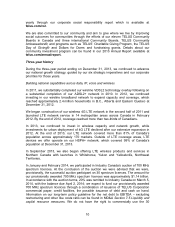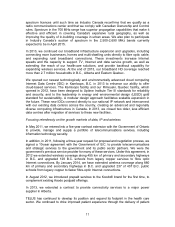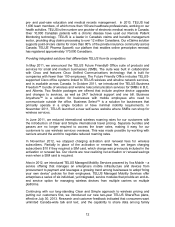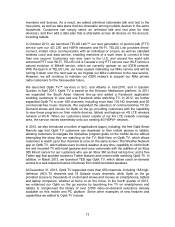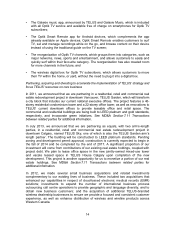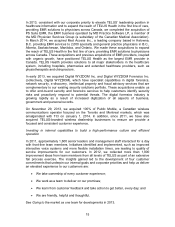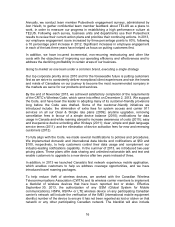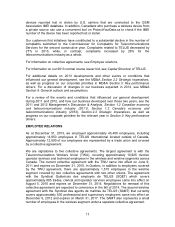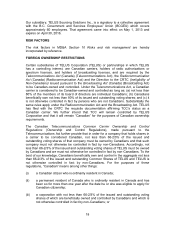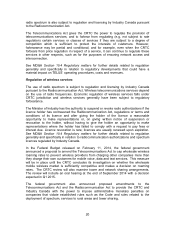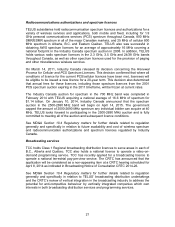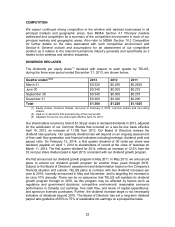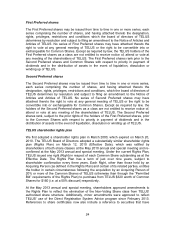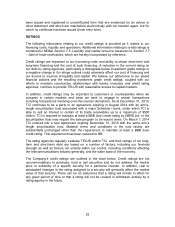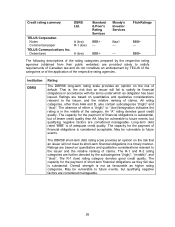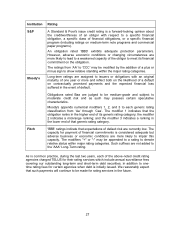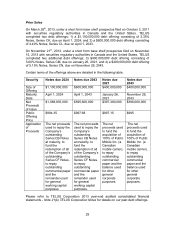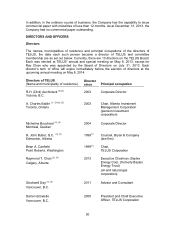Telus 2013 Annual Report Download - page 20
Download and view the complete annual report
Please find page 20 of the 2013 Telus annual report below. You can navigate through the pages in the report by either clicking on the pages listed below, or by using the keyword search tool below to find specific information within the annual report.20
radio spectrum is also subject to regulation and licensing by Industry Canada pursuant
to the Radiocommunication Act.
The Telecommunications Act gives the CRTC the power to regulate the provision of
telecommunications services, and to forbear from regulating (e.g. not subject to rate
regulation) certain services or classes of services if they are subject to a degree of
competition which is sufficient to protect the interests of customers. However,
forbearance may be partial and conditional, and for example, even when the CRTC
forbears from price regulation in respect of a service, it can continue to regulate these
services in other respects, such as for the purposes of ensuring network access and
interconnection.
See MD&A Section 10.4 Regulatory matters for further details related to regulation
generally and specifically in relation to regulatory developments that could have a
material impact on TELUS’ operating procedures, costs and revenues.
Regulation of wireless services
The use of radio spectrum is subject to regulation and licensing by Industry Canada
pursuant to the Radiocommunication Act. Wireless telecommunications services depend
on the use of radio frequencies. Economic regulation of wireless services falls under
CRTC jurisdiction and wireless services generally have been subject to regulatory
forbearance.
The Minister of Industry has the authority to suspend or revoke radio authorizations if the
licence holder has contravened the Radiocommunication Act, regulations or terms and
conditions of its licence and after giving the holder of the licence a reasonable
opportunity to make representations or, on giving written notice of suspension or
revocation to the holder, without having to give the holder an opportunity to make
representations where the holder has failed to comply with a request to pay fees or
interest due. Licence revocation is rare; licences are usually renewed upon expiration.
See MD&A Section 10.4 Regulatory matters for further details related to regulation
generally and specifically in relation to radiocommunication authorizations and spectrum
licences regulated by Industry Canada.
In the Federal Budget released on February 11, 2014, the federal government
announced a proposal to amend the Telecommunications Act to cap wholesale wireless
roaming rates to prevent wireless providers from charging other companies more than
they charge their own customers for mobile voice, data and text services. This measure
will be in place until the CRTC concludes its investigation on whether the wholesale
mobile wireless market is sufficiently competitive and makes a decision on roaming
rates. The CRTC review will also examine tower and network sharing arrangements.
The review will include an oral hearing at the end of September 2014 with a decision
expected in Q1 2015.
The federal government also announced proposed amendments to the
Telecommunications Act and the Radiocommunication Act to provide the CRTC and
Industry Canada with the power to impose administrative monetary penalties on
companies that violate established rules such as the Code and rules related to the
deployment of spectrum, services to rural areas and tower sharing.


